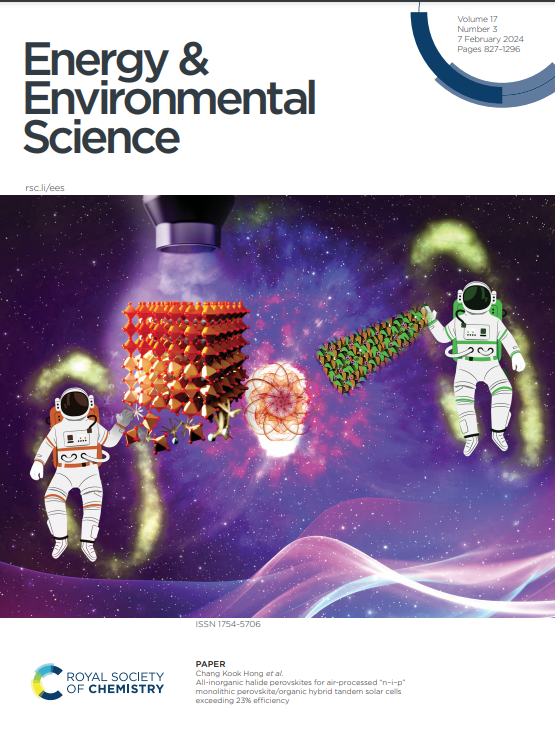Data-driven insights into reaction mechanism of Li-rich cathodes
IF 32.4
1区 材料科学
Q1 CHEMISTRY, MULTIDISCIPLINARY
引用次数: 0
Abstract
Lithium-rich layered oxides (LRLOs) hold great promise as cathode materials for lithium-ion batteries, but they face challenges due to their complex electrochemical behavior and structural instability. Here, we propose an unsupervised analysis framework that applies Principal Component Analysis (PCA) to a large dataset of over 30,000 LRLO charge curves to identify fundamental degradation factors and enhance predictability. By incorporating ex situ Mn L-edge and O K-edge soft X-ray absorption spectroscopy (sXAS), along with electrochemical impedance spectroscopy (EIS), we connect each principal component to physical phenomena such as Mn reduction and rising charge transfer resistance. Leveraging these insights, we demonstrate robust predictive models that can accurately reconstruct full charge curves and reliably detect outliers or abnormal cycling patterns. By bridging mechanistic domain knowledge with unsupervised learning, this framework underscores the value of combining data-driven methodologies with mechanistic insights, paving the way for more reliable and high-performance materials in next-generation battery systems.求助全文
约1分钟内获得全文
求助全文
来源期刊

Energy & Environmental Science
化学-工程:化工
CiteScore
50.50
自引率
2.20%
发文量
349
审稿时长
2.2 months
期刊介绍:
Energy & Environmental Science, a peer-reviewed scientific journal, publishes original research and review articles covering interdisciplinary topics in the (bio)chemical and (bio)physical sciences, as well as chemical engineering disciplines. Published monthly by the Royal Society of Chemistry (RSC), a not-for-profit publisher, Energy & Environmental Science is recognized as a leading journal. It boasts an impressive impact factor of 8.500 as of 2009, ranking 8th among 140 journals in the category "Chemistry, Multidisciplinary," second among 71 journals in "Energy & Fuels," second among 128 journals in "Engineering, Chemical," and first among 181 scientific journals in "Environmental Sciences."
Energy & Environmental Science publishes various types of articles, including Research Papers (original scientific work), Review Articles, Perspectives, and Minireviews (feature review-type articles of broad interest), Communications (original scientific work of an urgent nature), Opinions (personal, often speculative viewpoints or hypotheses on current topics), and Analysis Articles (in-depth examination of energy-related issues).
 求助内容:
求助内容: 应助结果提醒方式:
应助结果提醒方式:


